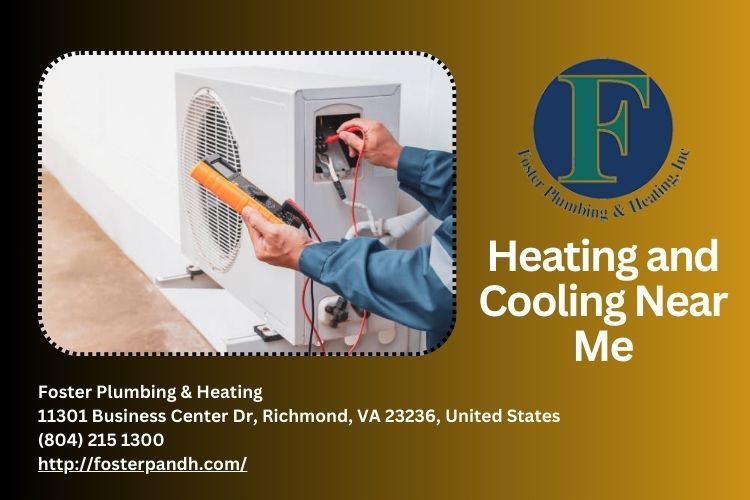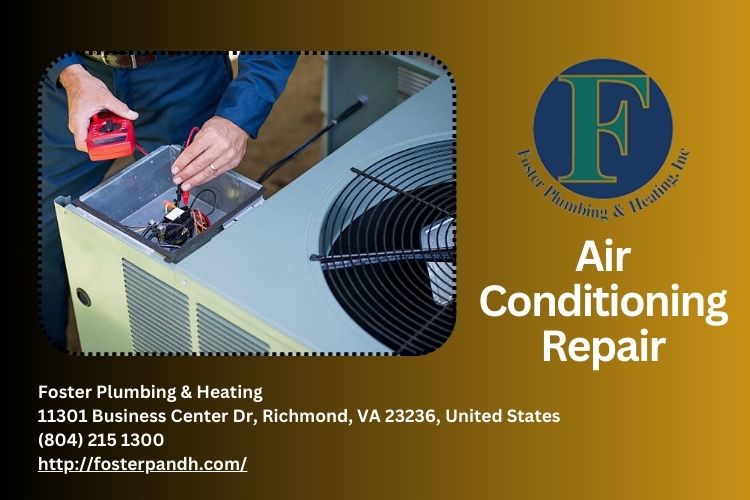Introduction
Heating, ventilation, and air conditioning (HVAC) systems play a critical role in maintaining comfort within our homes and workplaces. As these systems age or experience malfunctions, homeowners often face a pivotal decision: should they attempt DIY repairs or call in professionals? In this comprehensive guide, we'll explore the differences between DIY and professional HVAC repair. We'll delve into when it's best to roll up your sleeves and tackle the issue yourself and when you should pick up the phone to contact experts like Foster Plumbing & Heating.
Understanding HVAC Systems
What is an HVAC System?
An HVAC system encompasses various components that work together to regulate indoor temperature and air quality. This includes heating units (like furnaces), cooling units (like air conditioners), ventilation systems, and ductwork.
Key Components of an HVAC System
Furnace: Heats the air before circulating it throughout your home. Air Conditioner: Cools indoor air during hot months. Ductwork: Channels heated or cooled air throughout your space. Thermostat: Controls temperature settings based on user preferences. Ventilation Fans: Ensure proper airflow and indoor air quality.Common HVAC Issues
1. Air Conditioning Not Cooling Properly
If your AC isn't blowing cold air, it might be due to refrigerant leaks or a malfunctioning compressor.
2. Uneven Heating or Cooling
This could indicate issues with ductwork or insulation problems within your home.
3. Strange Noises from HVAC System
Banging, clanking, or hissing noises can signal mechanical failures that require immediate attention.
DIY vs. Professional HVAC Repair: An Overview
Understanding whether to engage in DIY repairs or hire professionals can save you time, money, and potential hazards.
Pros of DIY HVAC Repair
Cost Savings
One of the main reasons homeowners consider DIY repairs is financial savings; however, it’s crucial to weigh these against potential risks.

Learning Experience
Undertaking repairs can build your knowledge about how your system works, potentially benefiting future maintenance tasks.
Cons of DIY HVAC Repair
Safety Risks
HVAC systems involve electrical components and gas lines that pose serious safety risks if mishandled.
HVAC http://fosterpandh.com/Potential for Further Damage
Inexperienced hands might inadvertently worsen existing problems leading to more costly repairs down the line.
When is DIY Repair Appropriate?
Minor Maintenance Tasks
- Replacing filters. Cleaning condensate drains. Checking thermostat settings.
These tasks are generally safe for most homeowners to handle without professional help.

When Should You Call Professionals?
Complex Repairs
- Refrigerant charging Electrical component replacement Ductwork issues
These repairs usually require specialized tools and expertise found in trained technicians like those at Foster Plumbing & Heating.
DIY vs. Professional HVAC Repair: Key Considerations
| Factor | DIY | Professional | |----------------------|---------------------------------|----------------------------------| | Cost | Generally lower initial cost | Higher upfront cost but saves long term | | Skill Required | Basic handyman skills | Advanced technical knowledge | | Time Investment | Can take longer | Typically quicker completion | | Safety | Potentially risky | Safer with trained professionals |
The Role of Foster Plumbing & Heating in Your HVAC Needs
When it comes down to it, choosing a reputable service provider is essential for peace of mind regarding your HVAC system's longevity. At Foster Plumbing & Heating, we specialize in comprehensive heating and cooling solutions tailored to meet each client's needs effectively.
FAQ Section
What are signs my HVAC system needs repair?- Look for inconsistent temperatures, unusual noises, high energy bills, or increased humidity indoors.
- It’s advisable to schedule professional maintenance at least once a year for both heating and cooling systems.
- No! Handling refrigerants requires special certification due to environmental regulations and safety protocols.
- Turn off the unit immediately and allow it to thaw; then check filters before restarting or consulting a professional if issues persist.
- Yes! Home improvement stores often provide guides; however, always prioritize safety over saving money!
- Look for licensed contractors with good reviews; consider their experience level with systems similar to yours as well!
Conclusion
In summary, deciding between DIY vs. professional HVAC repair depends on several factors such as skill level, risk tolerance, complexity of the issue, and ultimately personal preference regarding safety versus convenience. While routine maintenance may be manageable for many homeowners, significant repairs often warrant expert attention from seasoned professionals like those at Foster Plumbing & Heating who ensure that your home remains comfortable year-round without unnecessary risk or expense.
Contact us:
Foster Plumbing & Heating
11301 Business Center Dr,
Richmond, VA 23236,
United States
Phone: (804) 215-1300
This article serves as a thorough examination of whether you should handle your own HVAC repairs or rely on professionals like Foster Plumbing & Heating—providing insights into making informed decisions that bolster both safety and efficiency within your home's climate control systems.